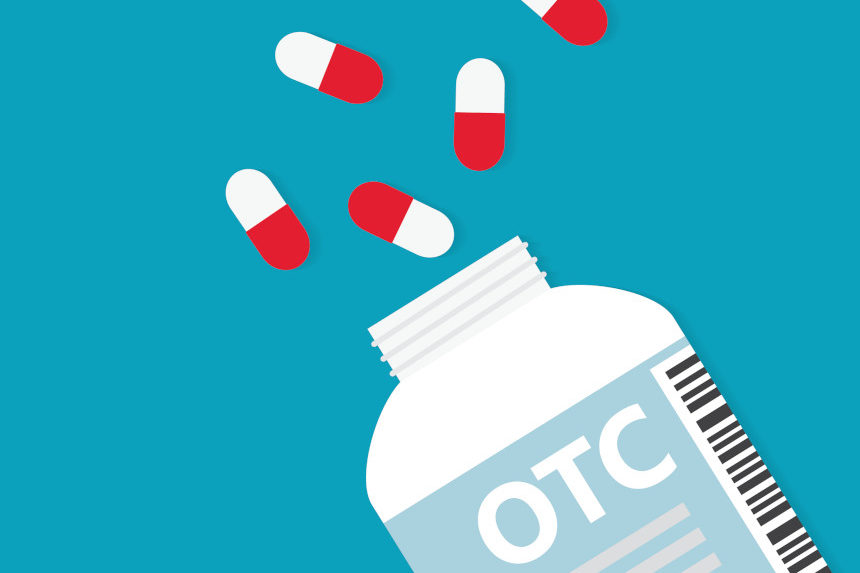“Your Health Checkup” is our online column by Dr. Douglas Zipes, an internationally acclaimed cardiologist, professor, author, inventor, and authority on pacing and electrophysiology. Dr. Zipes is also a contributor to The Saturday Evening Post print magazine. Subscribe to receive thoughtful articles, new fiction, health and wellness advice, and gems from our archive.
Order Dr. Zipes’ books, Ari’s Spoon, a new novel, as well as Bear’s Promise and Damn the Naysayers, A Doctor’s Memoir. Check out his website at dougzipes.com.
I try to practice what I teach, particularly when taking over the counter (OTC) medications, i.e., those drugs available without prescription used to self-treat a variety of conditions. I am one of millions of Americans who rely on OTCs, but I do so cautiously and pay attention to recommended doses and warnings about side effects by carefully reading the label.
I’ve written about the potential perils of nonsteroidal anti-inflammatory drugs (NSAIDS) that can cause bleeding, usually from the GI tract. NSAIDs, particularly diclofenac (Voltaren), also can increase the risk of cardiovascular complications such as heart attacks and strokes. I limit my intake to just a few caplets of naproxen (Aleve) for only a few days to combat simple aches and pains.
Virtually any drug taken in large doses can be harmful, depending on the individual and the setting. For example, even acetaminophen (Tylenol) — thought to be safer than NSAIDS — taken in large doses can cause liver failure and is the most common cause of the need for liver transplantation in the U.S.
A recent personal example illustrates the hazards of overdosing. Just a few mornings ago, I got a call from a close friend, previously healthy, that she was dizzy, weak, had a heart rate in the 30s and a low blood pressure. Each time she tried to climb out of bed, she’d collapse, unable to stand. She’d vomited a few times with traces of blood in the vomitus. Appropriately, she’d called 911 and was whisked to the emergency room where she was now. Could I come and check her out?
When I took her history, I found that she’d been suffering from a toothache for several days and had been taking ibuprofen to combat the pain. “How much were you taking?”
“Two tabs every four hours.”
Since each tablet is 200 mg, that would be a total of 2400 mg per day for three days. One website gives the maximum adult dose as 400 mg every four to six hours as needed, for a total dose of 2400 mg/day, without specifying whether this was for a 200-pound man or a 100-pound woman (my friend).
Another site recommends half that dose, or one pill every four to six hours (that would max out at 1200 mg/day), but not to take more than 10 pills in 24 hours, which would be 2000 mg/day.
Finally, a third site states a maximum of 3200 mg/day divided into three or four doses is acceptable.
My friend added that she was also taking an antibiotic, but she wasn’t certain which one. Websites contain varied information on combining antibiotics with ibuprofen, with some stating there is no problem, and others warning to do a drug interaction screen to avoid adverse kidney, stomach, or bleeding toxicity.
Over a period of two to three days after stopping the ibuprofen, my friend’s side effects disappeared, and her health returned to normal.
There are several take-home messages from this experience.
- First, read labels, and check reliable internet websites to be certain of doses and side effects of ALL drugs, including the OTCs. Marketing claims can be misleading.
- Second, recognize that medical experts often do not have precise information for all drug doses and side effects that can be generalized to all men and women, large and small. Surely there should be different dosing for a woman weighing half as much as a man.
- Third, all medications have a risk/benefit ratio that balances potential benefit versus potential harm. The best drugs generate the most benefit and least harm.
- Finally, and most important, all medication should be taken in the lowest effective dose possible and for the shortest time necessary to achieve the desired effect.
Taking any medication has risks, so be cautious about what you ingest, whether it is an OTC medication or one prescribed by a health care worker.
Featured image: Shutterstock
Become a Saturday Evening Post member and enjoy unlimited access. Subscribe now



